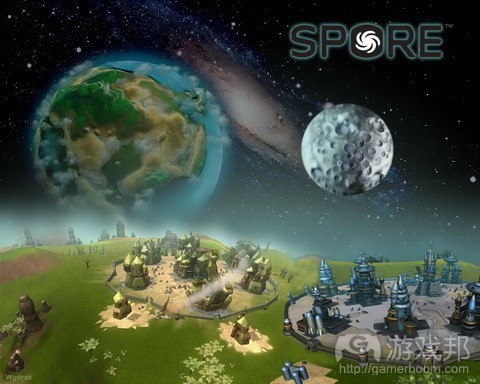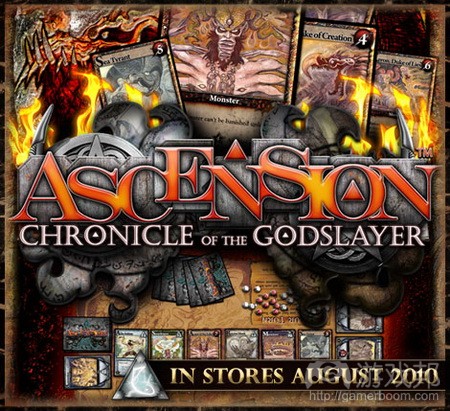Soren Johnson谈自身行业过渡和新作开发
作者:Soren Johnson
我已在Zynga呆了9个月,因此多数行业好友都知道这一消息许久,令此变成“公开的秘密”。出乎意料的是,这一消息媒体并不知道(游戏邦注:只有Gamasutra在我上班的头一周临时提及)。促使我加入Zynga的形势变化有些令人头晕目眩,尤其是因为我现在回到Maryland,同Brian Reynolds和Tim Train等之前的游戏领域大人物共事。我不禁有些困惑,因为我2000年最初加入公司,是为了顶替Brian,在大批人员流向BHG后,协助公司完成《文明3》的开发。当时,Firaxis的气氛依然有些呆滞,所以我最初对它们的印象并不好!多年来,我有幸认识了Tim和Brian,我总是说,如果有机会,他们的设计文化和我非常匹配。我并没有想到我们能够通过Zynga获得这样的机会,但到目前为止,一切都很不错。
下面是若干访谈内容:
你是最新加入Zynga的前EA雇员。在你看来,这对EA和Zynga来说分别意味着什么?
行业人才纷纷转移至社交和手机游戏领域说明,传统模式面临巨大挑战。这一模式要求开发者出售定价60美元的盒装产品,这需要相当高的制作价值方能动摇玩家。当然,AAA制作意味着开发成本将高达上百万,这意味着定价60美元的游戏需要售出至少几百万份,方能令项目的开发富有价值。这一商业模式具有可行性,但利润并不显著,而且随着开发成本的提升及零售数量的下滑,情况进一步恶化。这一机制的一个奇怪悖论是,有些中等项目成本过低,以致传统游戏公司未能进行投资,因为公司需要将所有资源投入在若干核心项目上。
手机和社交游戏忽然变得非常受游戏设计师青睐,因为它们跳过这一问题。由于这些游戏只需要少量的AAA游戏开发成本,设计师能够轻松尝试激进的新构思,毫无任何体制压力。此外,从网页或连网智能手机上收集反馈信息更加便捷,团队可以通过常规更新内容调整进程。高成本的传统多人开发模式(游戏邦注:排除用户反馈)忽然变成不再那么有吸引力。
你过去曾参与《文明IV》和《孢子》的开发,你通过传统游戏学到的经验能否运用至社交领域和Zynga模式中?
趣味性依然存在于玩家的脑海中,这并没有因为平台而发生改变。改变的是各项新技术带来的特定设计可能性,例如,零账户支出、假定的持久性、有保障的连接性、预先制作的好友清单、嵌入的病毒式传播渠道、通用存取及日益完善的游戏引擎。这些功能让我们得以挖掘前所未有的设计领域。我觉得自己目前的工作是过去的直接延续,我利用自己开发策略游戏12年的经验,充分挖掘这些新的可能性。
你负责编码,还是设计,还是二者皆有?
我负责项目的编码和设计工作,就如我在《文明IV》中所做的工作一样。我喜欢这样的工作方式,因为我无需解释我预期的功能运作方式,能够投入更多时间查看它们的实际运作效果。我采用独特的技术解决方案(GWT/PlayN),这让我能够基于一种语言编写HTML5游戏,包括客户端和服务器,这意味着此处不存在重复的易出错代码,呈现一致风格。当然随着项目的扩大,制作代码和进行设计变成一大瓶颈,但策略游戏(它们是基于规则,而非基于内容的游戏)的一个优点是少量代码能够带来大量玩法。因此,额外编程资源将被用于同核心游戏并行的功能中——可扩展性、UI、配对、参数和模组等。
能否谈谈你在Zynga着手的游戏项目所包含的必要元素?
现在透露当前制作的项目恐怕为时过早,尤其是之后期间还可能出现很多变数。但我目前正在制作的游戏并不会偏离我的开发历史,是款基于浏览器的具有持续性和可玩性的多人免费游戏。最重要的是,游戏有真的的终结点,有赢家和输家。这对Zynga来说是个截然不同的尝试,但这是许多策略游戏的必要元素。当游戏存在真正的获胜条件时,决策的意义就以不同方式表现。换句话说,《魔兽世界》之类的持续性MMO游戏的确存在些许势均力敌的竞争,但最终玩家较量的对象是自己。没有人在乎你在矮人牧师中投入多少时间。另外,当你在《文明IV》中出其不意地打败某人时,感觉将非常激动人心。
就机制方面而言,你是否觉得社交游戏变成越来越像我们所熟悉的PC或主机游戏?
“社交游戏”一词出现干年后,大家就持有不同看法,许多传统游戏开发者以这一术语形容“我们不喜欢的Facebook游戏”。另一方面,很多大型热门作品(如《Words with Friends》、《宝石迷阵闪电战》和《Draw Something》)并未被视作“社交游戏”,而是挖掘社交游戏可能性的杰出作品——有保障的连接性、账户持久性及有意义的好友列表等。因此,最佳情况是,随着各类游戏(游戏邦注:甚至是传统意义上的单人模式游戏)变得越来越具社交性,这一术语本身逐步消失。例如,想想基于好友的排行榜如何推动《特技摩托》或《火爆狂飙》等主机游戏的体验。
最后,玩法由我们所采用的设备的输入和输出装置决定,这些设备允许和鼓励特定玩法类型,目前有3种主要形式——-主机(基于手柄的高清电视,能够在沙发上进行)、PC(键盘、鼠标、显示器、桌面形式)及移动设备(小屏幕、触控装置、无处不在)。主机将继续支配基于虚拟角色的游戏,其中控制器用于“引导”角色或交通工具。PC是复杂游戏的天然平台,因为他们的准确输入和“倾斜”环境。移动设备非常适合异步玩法,基于触控的用户界面带来全新类型的游戏,就如Wii通过手势控制装置带来的体验。杰出作品将利用这些形式的独特性能,这就是为什么Facebook游戏无法立即变成下款《光晕》。
关于社交和手机游戏带给传统主机商业模式的影响,你的看法是什么?
目前游戏业务的有趣之处在于,同时存在4种不同的商业模式。关于主机游戏,零售模式依然占据主导位置,其中越来越多的收益来自于虚拟交易。在PC领域,零售模式已经消亡,但传统的一次性购买游戏依然在Steam蓬勃发展。此外,从《CityVille》到《英雄联盟》的免费模式游戏能够纯粹通过虚拟交易获得成功。在移动设备上,应用商店占据主导地位,其中主要收益来自于微交易。随着时间的流逝,这4种模式将并入一个兼容的系统中。我们已看到很多集合现象;Steam积极支持微交易和免费模式游戏,虚拟交易是苹果App Store的重要添加内容。最大的疑问在于下代主机。完全植入应用商店模式的优点显而易见,但存在很多既有利益和历史关系将减缓这一过渡过程。
一般说来,应用商店获得广泛关注是因为开发者能够通过小规模的游戏作品向玩家收取费用。例如,我完全可以通过支付4.99美元购买《Ascension》,进而通过浏览器进行体验,但业内没有“购买”网页页面的传统。另一方面,苹果App Store兼容无阻碍消费、灵活定价、自动提交和庞大用户基础,带来前所未有的游戏市场。在某些情况下,浏览器(基于开放标准,支持跨设备功能)的重要性需要结合应用商店的便捷性,方能创造出更优质的机制。
你认为《文明IV》瞄准的硬核PC玩家是否会想要体验你的下款Zynga游戏,或者你是否需要改变你的设计哲学,迎合更新颖、更休闲的用户?
我认为《文明》粉丝无疑会喜欢我当前于Zynga制作的作品;事实上,我认为他们会是首批体验这款作品的玩家。和《文明IV》一样,我将尽量保持游戏的简单性,让所有玩家都能够轻松上手。记住,《文明》本身并非典型的策略游戏,其用户规模远超越其他回合策略游戏。原因是,这一系列秉承“Sid的设计简约性”理念,避免以现实主义的名义堆积越来越多的规则和机制。我希望自己能够继续秉承这一传统,给每位玩家制作游戏。(本文为游戏邦/gamerboom.com编译,拒绝任何不保留版权的转载,如需转载请联系:游戏邦)
The Road to Zynga
By Soren Johnson
So, I’ve got a new job, which was revealed publicly in an interview at GamesIndustry International. I’ve actually been at Zynga for nine months now, so most of my games industry friends (and regular friends, for that matter) had known about it for quite awhile, making this move one of those “worst-kept secret” things. Surprisingly, the news stayed out the press, with the exception of an off-hand reference at Gamasutra during my first week of work! The turn of events which got me to Zynga is somewhat head-spinning, especially since I am now back in Maryland, working with Brian Reynolds, Tim Train, and a bunch of other former Big Huge Games people. I can’t helped be a little bemused because I was originally hired in 2000 to replace Brian & co. to finish (or, more accurately, to restart) the development of Civilization 3 after the mass exodus to BHG. Indeed, at the time, emotions were still a little raw at Firaxis, so my initial, second-hand impression of them was perhaps not ideal! Over the years, I got to know Tim and Brian in person, and I could always tell that their design culture would be a great fit for me if the opportunity ever arose. I didn’t always expect that opportunity to come at Zynga, but so far, so good. I’ll have a lot more to say on that topic once I can actually talk about my current project!
Here are some relevant bits from the interview:
Q: You’re the latest in a string of former EA employees to join Zynga. What do you think this says about EA and what does it say about Zynga?
A: The shift we’re seeing with industry talent moving towards social and mobile games illustrates the challenges of the old model. That model demands selling a $60 box product, which requires exceptionally high production values to sway the consumer. Of course, AAA production means development costs measured in the tens (or perhaps hundreds) of millions of dollars, which then requires a game to sell at least several million copies at the $60 price to be worth developing. This business model can work, but the margins are not great, and they keep getting worse as development costs increase and retail sales soften. One of the bizarre paradoxes of this system is that some mid-tier games cost too little for traditional games companies to fund because the company needs to put all of its organizational weight behind a few key titles.
Mobile and social gaming suddenly became very attractive for game designers because they circumvent this problem entirely. As these games require a fraction of the cost of AAA games, radical new ideas can be tried out fairly easily and with little institutional pressure. Further, feedback is much easier to gather from the Web or connected smartphones, and teams can continually course-correct with regular updates. The old system of expensive, multi-year development, cut off from the oxygen of player feedback, suddenly became much less appealing.
Q: Given your experiences in the past on Civ IV and Spore, how well does what you’ve learned on traditional games apply to the social space and Zynga’s approach?
A: Fun still happens inside the player’s head, and that doesn’t change from platform to platform. What does change is that certain design possibilities are unlocked with each new technology, such as zero account overhead, assumed persistence, guaranteed connectivity, pre-made friends lists, built-in viral channels, universal access, and ever-improving game engines. These features let us explore areas of design that were previously unavailable. Indeed I feel like my work right now is a direct continuation of what I have done in the past, and I am simply using my twelve years of experience as a strategy game developer to take advantage of these new possibilities.
Q: Are you coding, or designing, or some of both?
A: I am doing the code and the design for the project, just as I did with Civ IV. I like working this way because I can spend less time explaining how I want a feature to function and more time watching how it works out in practice. I am using a somewhat unusual technology solution (GWT/PlayN) that enables me to write a HTML5 game in one language, including client and server, which means I have no duplicate, error-prone code and a very consistent style. Of course, doing code and design could make me a major bottleneck as the project grows larger, but one of the advantages of strategy games is that – because they are rules-driven instead of content-driven – a small amount of code can create a large amount of gameplay. Thus, extra engineering resources will be dedicated to features that work in parallel to the core game – scalability, UI, matchmaking, metrics, modding, and so on.
Q: Can you give us any hints at all about what your game project at Zynga entails?
A: I’m afraid that it’s too early to reveal much about what I’m currently working on, especially since a lot could change between now and our release date. However, I can say that I am working on a game that would not be a shocking departure from my development history, but one that is multiplayer-focused, free-to-play, persistent, and playable in the browser. Most importantly, the game is one that actually ends, with real winners and real losers. That’s a big departure for Zynga, but it’s a necessary element for many types of strategy games. Decisions matter in vastly different ways once games have an actual victory condition. Put another way, a bit of a level race does exist in persistent MMOs like World of Warcraft, but ultimately the race is just with yourself. No one else really cares how much time you put into your dwarf cleric. On the other hand, it’s a powerful feeling when you beat someone to a wonder in Civ IV.
Q: Do you see social games becoming more like familiar PC or console games in terms of mechanics?
A: After a couple years the term “social gaming” came to mean different things to different people, and many traditional game developers simply use the term to describe “games on Facebook that we don’t like.” On the other hand, some of the biggest hits (Words with Friends, Bejeweled Blitz, Draw Something) are not really thought of primarily as “social games” but simply as great games that take advantage of the possibilities of social gaming – guaranteed connectivity, account persistence, meaningful friends lists, etc. Therefore, the best-case scenario for social gaming is for the term itself to disappear as all games become more social, even ones that are traditionally thought of as primarily single-player. For example, consider how friend-based leaderboards drive the experience in console games like Trials Evolution or Burnout Paradise.
Ultimately, gameplay is determined by the input and output of the devices we use, which enables and encourages certain types of play, and there are currently three important formats – the consoles (defined as gamepad, high-def TV, couch-based), the PC (keyboard, mouse, monitor, desk-based), and mobile (small screen, touch-based, omnipresent). Consoles will continue to dominate avatar-based games as controllers are built to “pilot” characters or vehicles. PCs are the natural home for more complex games because of their precise input and “lean-in” environment. Mobile is perfect for asynchronous gaming, and the touch-based user interface creates entirely new types of games just like the Wii did with motion-based controls. The best games will take advantage of the unique power of their formats, which is why we shouldn’t necessarily expect Facebook games to suddenly become Halo.
Q: What’s your take on the impact of social and mobile games on the traditional console business model?
A: What’s interesting about the games business right now is that we have four different business models operating at once. For console games, retail still dominates with increasing revenues from microtransactions. On the PC side retail is dead, but traditional, single-purchase games still thrive on Steam. Furthermore, free-to-play games from CityVille to League of Legends can succeed purely via microtransactions. On mobile devices, the app store dominates with the big money coming from in-app purchases. Over time, these four models will almost certainly merge into one consistent system. We have already seen plenty of convergence; Steam made a big push to support microtransactions and free-to-play games while in-app purchases were an important later addition to Apple’s App Store. The big question is the next generation of consoles. The benefits of fully embracing an app store model are obvious, but there are many entrenched interests and historical relationships slowing down that transition.
App stores, in general, are very interesting simply because they make it possible to actually charge players for small-scale games. For example, there is no reason why I shouldn’t be able to buy Ascension for $4.99 to play in my browser, but the tradition simply does not exist to “buy” web pages. On the other hand, the Apple App Store combines frictionless purchasing, flexible pricing, automated submissions, and an enormous audience to create a market for games which didn’t exist previously. At some point, the importance of the browser (with open standards and cross-device support) needs to combine with the ease of the app store (with a standardized purchasing model), to hopefully create an even better system.
Q: Do you think the kind of hardcore PC player that you targeted with Civ IV will want to play your next game at Zynga, or do you have to change your design philosophy to cater to a new, more casual audience?
A: I expect Civ fans will absolutely be interested in my current project at Zynga; in fact, I anticipate them to be among the first wave of players to try out the game. As with Civ IV, I will be trying to make the game as simple as possible to keep it accessible for any kind of player. Remember that Civ itself is no typical strategy game and has an audience which is an order of magnitude larger than any other turn-based strategy game. The reason is that the series is infused with “Sid’s design parsimony” (to borrow a phrase from Chris Crawford), refusing to pile on more and more rules and mechanics in the name of realism. I hope to carry this tradition forward to make a game for every gamer.(Source:designer-notes)









































 闽公网安备35020302001549号
闽公网安备35020302001549号